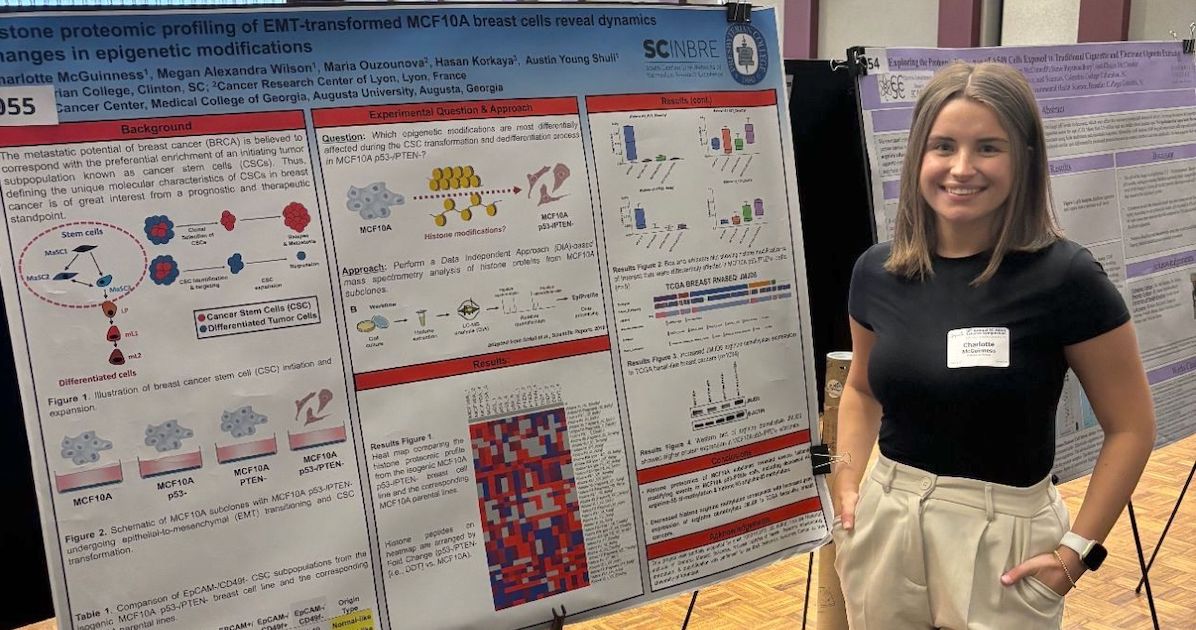Presbyterian College Undergraduates Publish Prestigious Cancer Research

Presbyterian College senior Charlotte McGuinness ’24
by Samantha Hauff
A group of Presbyterian College undergraduate students, led by biology professor Dr. Austin Shull ‘11, has recently published a project in microPublication Biology.
The students involved included current undergraduates Margaret Leonard and Charlotte McGuiness and alums Rylee White and Emma Gray – all of whom are pursuing careers in medical science or biology research.

Margaret Leonard ’26
“This project has not only been super informative, but also a lot of fun,” said Leonard, a sophomore from Rock Hill. “Every day, I am excited to come into the lab because I know that I will actually enjoy what I am learning. It has made me a more confident learner and student.”
The project, on the comparison of nicotine receptors on head and neck cancer patients between previous and current tobacco smokers, was done in collaboration with Teng Yong at Winship Cancer Institute of Emory University.
“Our report highlights that nicotinic receptor CHRNA5 is overexpressed in head and neck cancer patients who have a recent tobacco smoking compared to those who did not upon diagnosis,” said Shull.
The results are striking as PC undergraduates are making waves within the competitive world of cancer research.
“Working on this project specifically has been very interesting and beneficial as most of this data was obtained through computational databases,” said McGuinness, a senior who is also from Rock Hill. “Although I had some prior background knowledge in computational biology and bioinformatics from my own project, this has allowed me to explore the other sides of science, broadening my knowledge and techniques in the field.”
The research offered opportunities for students to participate in gathering, organizing, and analyzing data into a final, concise publication of their findings.
“Based on our analysis, we determined that this CHRNA5 overexpression correlated with worse survival rates and suppression of immune activation signatures that are commonly associated with better outcomes,” said Shull.
The report complements other research within the field and contributes to the conversation between researchers about how tobacco leads to cancer progression, notably because of the rise of e-cigarette usage.
Students reflected on the experience with appreciation both for their advisor, Dr. Shull and their fellow researchers. The impact of this project has not only benefited the realm of cancer research, but has also continued to benefit the lives of undergraduate researchers at PC, which provides a unique research experience for undergraduate STEM majors that differs from comparative institutions.
“PC gives such an individualized experience in everything they do, but especially through research,” said McGuinness. “Having my own project and shaping it how I would like with the guidance of my mentor Dr. Shull is a very unique research experience that you would not get at most schools.”
Shull expressed glowing pride in PC and the students involved in the study.
“Based on the type of research reflected in this manuscript, I’m incredibly proud of the impactful science our undergraduate students can accomplish at Presbyterian College,” he said.
